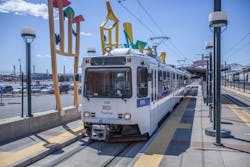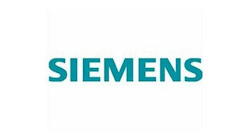Siemens has been awarded a $112 million contract to build an additional 29 SD-160 light rail vehicles for Denver Regional Transportation District (RTD). This order further extends the 22-year relationship between Siemens and RTD and will bring the Siemens’ fleet operating on the RTD light rail system to over 200 vehicles. The new vehicles will be completely interoperable with the current system, allowing Denver RTD to achieve lower operational and maintenance costs that should continue the agency’s ongoing cost savings that over the years has likely totaled millions of dollars for RTD and its taxpayers and passengers.
“This latest rail vehicle procurement continues our partnership with Siemens to provide the high-quality rail service our passengers have come to expect and depend upon,” said David Genova, RTD’s interim general manager and CEO. “Operating a fleet of similar vehicles throughout our light rail system gives us a higher level of flexibility and consistency that also helps us save costs.”
“As a public transit agency, it is important for us to use our funds wisely, while still providing excellent service to the metro region,” said RTD Board Chair Chuck Sisk “RTD looks forward to continuing our partnership with Siemens, which will also continue to save RTD and our taxpayers significant costs versus the added expense of a varied fleet that would increase maintenance, inventory, training and operations costs.”
The SD-160 light rail vehicles will be built at the Siemens rail manufacturing facility in Sacramento, Calif. The plant, which has been in operation for almost 30 years, is powered up to 80 percent by two megawatts of solar energy and currently employs over 800 people. Siemens is currently the leading supplier of light rail vehicles in North America.
“We’re thrilled to extend our over 20 year partnership with Denver RTD and continue to bring advanced technology to their growing ridership,” said Michael Cahill, president of Siemens Rolling Stock. “We are confident that these new light rail vehicles will continue to make maintaining and operating a fleet of over 200 vehicles as efficient and cost-effective as possible.”
The new vehicles are set to be delivered early 2018.



